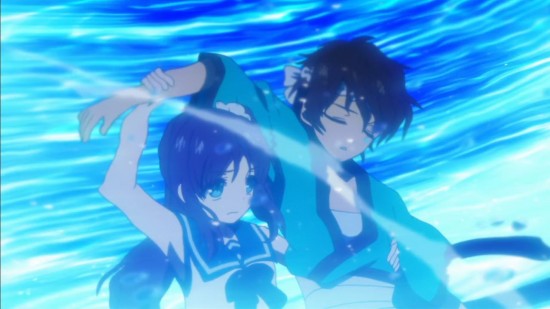
Nagi no Asukara (Crunchyroll) ended its first cour with a cliffhanger that was both visually striking and emotionally wrenching. By my rules this isn’t eligible for the “Best of 2013” list. Everything depends on how well they do the second half. However it may still qualify for the 2014 list.
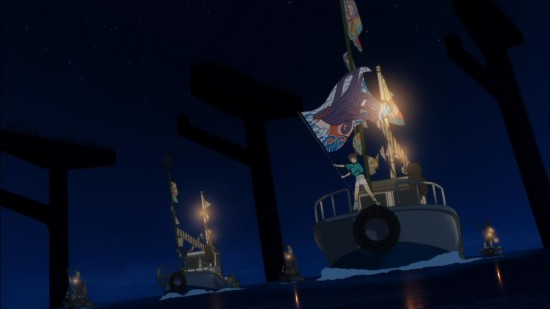
Some people dropped the series right at the start because Hikari, the main character, was such an immature little jerk. However he’s matured a lot over the course of the first cour.
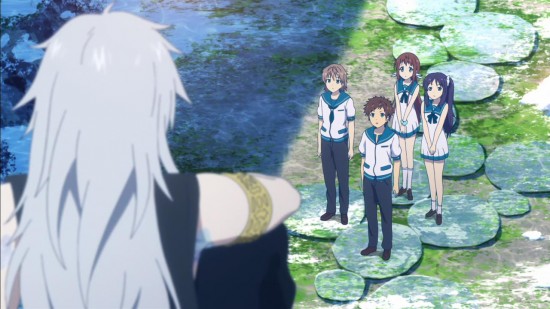
In fact all of the kids have had to grow up pretty fast. They are all more mature now. In fact each, in his or her own way, is somewhat heroic.
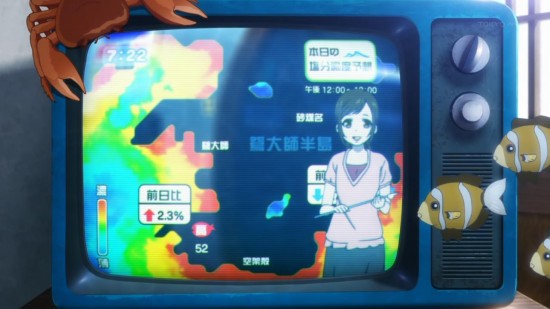
Many bloggers were discomfited by the way life under the sea is depicted as pretty much identical to life on land. Some objected to the idea of electricity and television under water. Personally I lost it when I saw them drinking soup out of bowls. But once you’ve accepted the idea of merpeople (or umihito or whatever you choose to call them) you’ve already swallowed the camel. Everything else is straining at gnats.
Most animators would have made a point of showing how wondrously different life under the sea is. The decision to do just the opposite was obviously a deliberate artistic choice.
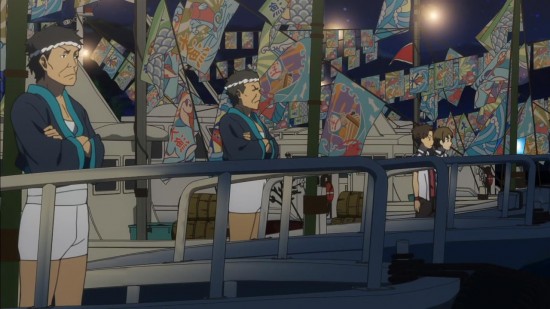
Probably the intended point is that the Sea People and the Land People, though they consider themselves very different, are really no more different than the residents of Osaka and the residents of Tokyo. (You may not be able to tell them apart but the difference is important to them.) Or to put it in European terms, the Norwegians and the Swedes.
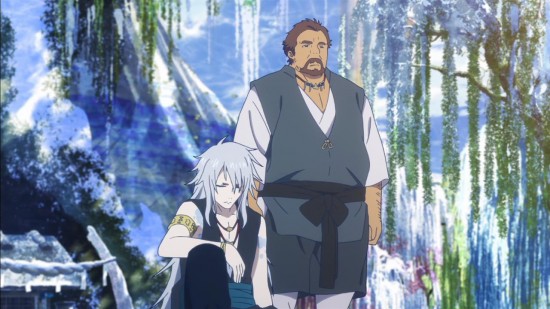
In my original post about the show I wrote “if this story turns out to be a variant of The Little Mermaid, Uroko-sama probably corresponds to the Sea Witch.” This story has more depth than either the Andersen or Disney versions of The Little Mermaid, but I think my prediction has basically been vindicated.
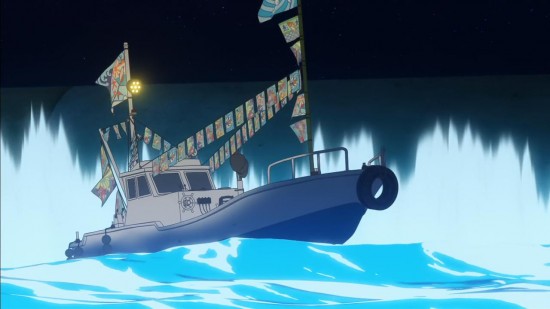
In any case this show has made a very good start. Let’s hope they keep it up.
Incidentally the producers have apparently decided that the English title should be “Nagi-Asu: A Lull in the Sea,” which seems a bit ironic considering what just happened. A better translation of the Japanese title might be “Calm Seas After Tomorrow.”

